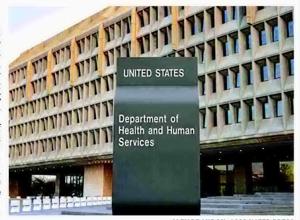BREAKING NEWS: The U.S. Food and Drug Administration (FDA) has just announced critical guidelines for regulating AI-enhanced medical devices, marking a significant step towards ensuring safety and efficacy in healthcare. This development comes as AI technologies rapidly reshape medical diagnostics and patient care.
The FDA’s new framework emphasizes a risk-based classification for these devices, categorizing them into three levels: Class I (low risk), Class II (moderate risk), and Class III (high risk). This approach is designed to address potential safety concerns while fostering innovation in the medical field.
The guidelines also mandate a thorough pre-market assessment for AI devices. Developers are required to demonstrate the integrity and quality of their training datasets to reduce biases, enhance transparency, and ensure user-friendly interfaces. This step is crucial as AI algorithms can significantly impact clinical outcomes, and healthcare professionals must understand AI recommendations without needing extensive technical training.
After a device is marketed, the FDA will implement post-market surveillance to monitor real-world performance, ensuring ongoing safety and effectiveness. This proactive measure will utilize real-world evidence from electronic health records to identify any emerging issues swiftly.
In addition to these regulatory measures, the FDA is tackling ethical dilemmas surrounding AI integration in healthcare. Key concerns include patient privacy and data security, with developers urged to comply with the Health Insurance Portability and Accountability Act (HIPAA). Furthermore, the FDA advocates for diversity in training datasets to mitigate algorithmic biases that disproportionately affect certain populations.
This announcement is pivotal for the healthcare sector as it seeks to balance the rapid advancements in AI with necessary safeguards for patient well-being. The implications of these guidelines extend beyond the United States, as the FDA collaborates with international regulatory bodies to establish a cohesive global approach to AI governance in healthcare.
The road ahead is filled with promise and responsibility. As AI-enhanced medical devices continue to evolve, ongoing dialogue among manufacturers, healthcare providers, and regulatory agencies will be essential to ensure that innovation does not compromise safety or ethics.
Immediate Impact: The FDA’s guidelines signify a commitment to responsible innovation in healthcare. Stakeholders must now navigate this new landscape to harness AI’s full potential while prioritizing patient safety and ethical considerations. The world watches as these developments unfold, shaping the future of healthcare delivery.
As we move forward, the collective commitment to transparency, trust, and collaboration among all parties involved will determine the transformative impact of AI on healthcare systems globally. This is a developing story—stay tuned for further updates on how these regulations will reshape the medical landscape.








































































